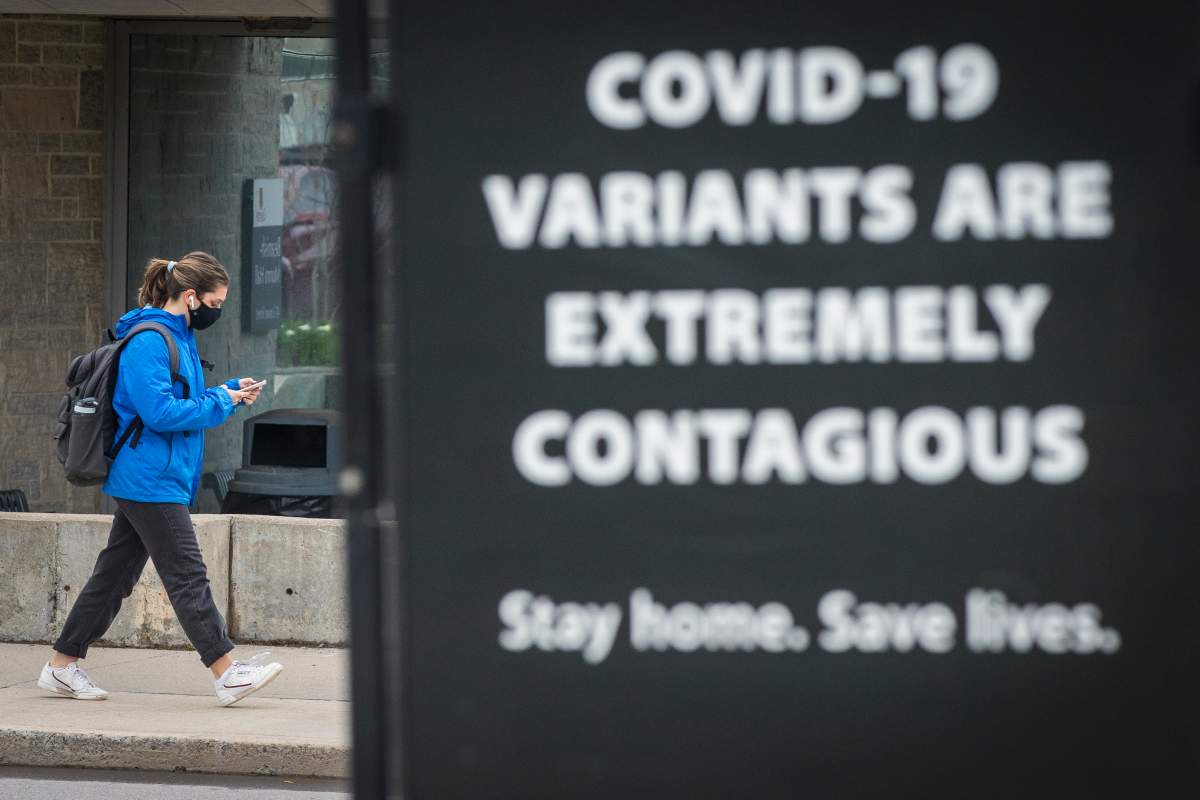People living in Hague, Osler and Rosthern are being cautioned of an increased risk of COVID-19 variants of concern in their communities.

The Saskatchewan Health Authority issued the advisory on Wednesday, stating the increased spread of the variants is resulting in more illness, hospitalizations and deaths.
The SHA said many people who are falling ill are much younger than previously seen in the pandemic.
Officials said the primary driver of transmission are gatherings between households and said people should keep to their household bubbles.
Under current public health measures in Saskatchewan, private indoor gatherings are limited to an immediate household only.
Exceptions include those living alone and single parents of minor children. Those households are permitted to meet with one consistent household of fewer than five individuals.

Get weekly health news
Caregivers, support personnel and tradespersons who are not a member of the household are not included in the measure.
The SHA said it is “strongly urging” everyone to adhere to the current public health measures, which include wearing a mask, avoiding gatherings and maintaining at least two metres of physical distance from other people.
Anyone who is able to work from home should do so, the SHA said.
Officials said anyone who develops COVID-19 symptoms should stay home and get tested.
Symptoms include fever, cough, headache, muscle and/or joint aches and pains, sore throat, chills, runny nose, nasal congestion, conjunctivitis, dizziness, fatigue, nausea/vomiting, diarrhea, loss of appetite (difficulty feeding for children), loss of sense of taste or smell, shortness of breath, difficulty breathing.
Testing can be arranged by contacting HealthLine 811 or a physician, or by visiting a local drive-thru test site.




Comments
Want to discuss? Please read our Commenting Policy first.